|
The Space Needle. Photo by Kate Ota 2021 One week has gone by since the end of the PNWA (Pacific Northwest Writer's Association) conference in SeaTac, WA, and I'm ready to discuss my experience.
Overview The conference went from Thursday September 21st through mid-day Sunday September 24th. It all took place within a hotel by the Seattle-Tacoma airport. The conference offered some master classes (for extra cost), seminars on various topics, quick 20 minute discussions, pitch sessions (speed-dating style and 1:1), dinners with some infotainment, a raffle, and a movie night (for extra cost). There were 4 publishers and 7 agents who took pitches, and many published authors, both traditional and indie/self-published who presented. My experience Food/Hotel I stayed at the hotel holding the conference and packed all my own food because little about the conference indicated any food was included (dinners were, as well as one brunch). My hotel room had no microwave or fridge though, so this became an ordeal. However, I do recommend packing your own lunches (and breakfasts if the hotel doesn't offer it) because the pre-ordered food was extremely expensive and the traffic around the airport made getting to or from a restaurant a daunting task. Food that was included with the conference was decent, no complaints. Classes/Seminars I didn't pay for any master classes, so I can't confirm or deny their value. Most of the seminars I attended were a little too basic for me, but I'm sure were great info for others. I took notes and did write down some great nuggets of info. Though I will say the two sessions about prepping pitches (one how-to and one practicing with others) contradicted each other often. One class that everyone raved about, taught by Damon Suede, I missed for my pitch session. There was also a great class about mystery taught by an ex-spy. Many presenters had their books in a mini-Barnes and Noble, and they were all happy to sign books. (Excellent for gift shopping!) Pitches One pitch session came free with conference registration, and you could select ahead of time which of four sessions to attend. The pitch session itself was crowded and required standing in line to pitch to who you wanted. I was able to pitch three people, since I was first in the room. Many people only had time to pitch two. I found this more chaotic than the format I've had at other conferences, where all the pitches are 1:1 and scheduled every five minutes. Eventually, there were 1:1 pitch sessions, and I stumbled into a free slot (they were supposed to cost extra). This was much smoother and removed the stress of wondering if or when I'd be able to pitch who I wanted. I got four requests from my four total pitches! People Like my experiences at other conferences, meeting new people was the most valuable part. I worked hard to make sure to small talk with anyone I ended up around--in lines, waiting to pitch, at meals, between classes. Everywhere. I'm not an extrovert, but I pretty much just pretended to be one. I met writers in my area and connected with so many people I want to keep in contact with. This is the truly most valuable part of any conference. Is It Worth It? I'm going to answer this question in two ways. First: is a writing conference in general worth the cost? Look at a couple items: what does the cost of admission include (example: food, pitch sessions, contests, how many days, are any big names going to be there, etc.)? What does it not include (example: hotel--although there may be a room block discount, food, master classes or special events)? What is the cost of travel to get there? Do that math and then ask yourself if that price is worth the experience on offer plus the people you'll meet. Second: is PNWA specifically worth the cost? Registration: $425, since I am a member and registered early. ($575 for non-members by the time the early-bird pricing ended) Hotel: over $800 for four nights (I checked in the night before to avoid commuter traffic heading toward Seattle.) Food: $0 (packed it) Movie night: $30, it was very entertaining and honestly on par with the price of a theater. Free snacks. Extra pitch slots: $0, though I lucked my way into a free one. Books: $50 at the mini-Barnes and Noble and got one signed What I got: lots of good notes, four requests for pages, and invaluable connections to local writers who I never would have met otherwise. (Struggle with finding friends as an adult? Go to a conference for your hobby/passion and you'll make some!) So is PNWA worth the cost? Will I go again next year (assuming life doesn't throw a wild curveball)? Yes! *Caveat: I realize those are some high prices. Boy am I glad I have a nice day job! If those prices are not worth it to you, please note that all of the agents and most of the publishers who were at the conference take cold queries. Most of the classes were from people who also teach online or have a book version of their class for much cheaper. If you want to network with other writers in your area but can't afford a conference, check out what critique groups might be meeting, or what free or lower cost events might be hosted by groups like PNWA. Attending a conference is not a requirement to get published! Did you attend PNWA or another conference this year? Want to tell other people to come to your conference, or warn them away? Let's discuss in the comments!
0 Comments
Hello blog readers and people visiting this site after meeting me at PNWA 2023!
I am exhausted after PNWA's wonderful conference, so this is the tiny little blog post I can wring from my brain this week. Next week I will talk about if the cost of the conference is worth it to help you decide if it's something you'd like to attend next year. (Or even if a conference more local to you is something you'd like to attend!) Other upcoming posts I can currently tease: A review of Throne of Glass from a newbie to Sarah J. Maas: is the hype worth your time? Lessons from a Classic: Asimov's iRobot Lessons from my first (and so far only) DNF of 2023 I was also recommended some amazing writing resources at the conference, so I'll be reviewing those as well, including the one I'm most excited for, the Trope Thesaurus by Jennifer Hilt. Don't forget the Judging More than Just the Cover Book Club podcast is currently reading Fourth Wing. Get ready for my hot takes on the Murder College trope! See you here next week, readers! If you're here because we met at PNWA give a shout out in the comments! Views from around Snowbird Resort. The bottom right is the deck where we had most of our meetings. Photos by Kate Ota 2022 I've teased this post for a while and it's finally here! I recently attended Futurescapes at the Snowbird Resort in Utah, and in the past I virtually attended Futurescapes in 2021. Futurescapes is a multi-day workshop focused on first pages (about 25), queries, and synopses, in which you and a small group (up to seven) of other writers work with a professional (author, agent, or editor) to improve your work. In my experience, the group has cycled between mentors for each critique item (pages, query, synopsis). I commented on my virtual experience previously, but now I figured I would write about how the in-person experience differed. That way, if someone is deciding between applying to the virtual workshop or waiting for an in-person version, they can see how both experiences worked out. Let's do some pros and cons.
As you can see the in-person experience had more pros and more cons than the virtual. Honestly, the virtual felt like a slightly more in-depth version of my usual critique groups but with a professional thrown in the mix. The in-person really felt like a workshop and a special treat because of the immersion. However, I recognize that I am privileged to be able to take time off work, have the money to attend, travel, and eat at the workshop, and have the physical mobility to travel to and within the resort. I also didn't experience altitude sickness, though many others did (I was born at altitude so it's my home turf). So, I fully recognize that virtual may be the better option for others. I will not make that call for you.
Overall, I am so grateful for both of my Futurescapes experiences. I won't be sharing much of what I learned at the in-person workshop, because a lot of it was either really tailored to me and won't be useful for others or is the type of advice that the professionals get paid to give and I don't want to steal their intellectual property. Agents and authors gotta eat too. Futurescapes is for you if one or more of the following applies:
Futurescapes is NOT for you if any of the following applies:
That's my experience with Futurescapes! Will I attend again in the future? Well, I hope I'm offered rep by an agent before then, and therefore won't qualify. If you're debating attending but have questions for me, feel free to leave a comment below. Hello there!
Are you checking out my website because we met at Futurescapes? Leave your website or socials below if you want to connect! It's officially spring time and that means Futurescapes 2021 is over. At least flowers are blooming! (Photo by Kate Ota) Last week I finished my experience with Futurescapes Writers’ Workshop 2021 and I’ve gone back through my frantically-written notes to find some universal gems to share. I’ve broken it into categories, so if you don’t care about queries, for example, you can skip that section. Most of this information I got from my group leaders and discussions in those groups. Anyone who had other leaders at Futurescapes might have gotten a totally different experience.
I didn't include anything I learned from the classes before Futurescapes. Some are classes offered by those teachers elsewhere, so it felt like proprietary info. I'm not looking to get sued. There’s a huge list of resources at the bottom. I wrote down any craft book, article, or website that was recommended to me. But be warned, I haven’t checked most of them out yet. About writing Don’t hold back with your ideas—editors want what’s fresh and new. There isn’t too far to stretch, just go for it! In your first pages, the most important thing is to not confuse your reader. The second thing is to intrigue them. Do this by grounding the scene in a physical place before going into too much action. First pages should hold enough worldbuilding to show this is a specific world (if this isn’t contemporary) but not so much worldbuilding that you need a world-bible next to you to understand what’s happening. Things should be familiar-yet-different. The phrase “heart pounded” is overused in all of writing. This advice is pretty subjective, but I hadn’t heard this before, so maybe you haven’t either. About Queries and Agents (especially Tricia Skinner) Maintain your author-agent relationship with plenty of communication. Tricia doesn’t require content warnings on queries. However, she’s not a fan of settings including slavery and concentration camps. (Especially for romance! I was shocked she even had to say that, but apparently that’s a thing.) Query must demonstrate character, conflict, and STAKES. So many people forget the stakes. Begin your query with some level of personalization for why you queried this agent. One sentence is fine. A query should be as clear and marketable as possible. In your bio, even if you’re unpublished, include anything that connects you to publishing. Things like attending workshops or writing groups count. At the bottom, below your name, should be your contact info. An author website, even if only a single page, is ideal. Tricia loves enemies in forced proximity as a trope. About synopses A synopsis should either be written in a totally neutral voice or the voice of the novel. (Personally, I think it’s much easier to go neutral.) If writing a multi-POV and struggling to write each character into the synopsis, consider introducing each new POV by mentioning where they are in proximity to the other characters (geography-wise). This cuts down on confusion, especially in a sprawling fantasy where characters may not be on the same continent or a sci-fi with multiple planets. If worldbuilding adds tension, include it. If it doesn’t, and the synopsis makes sense without it, don’t include them there. Emotional arcs should be included, and are probably more meaningful than including every plot event. Resources Bird by Bird by Ann Lamott The Author’s Checklist by Elizabeth Kracht Thrill Me by Benjamin Percy Writing the Breakout Novel by Donald Maas Manuscript Makeover by Elizabeth Lyon Story Genius by Lisa Cron On Writing by Stephen King Wonderbook: The Illustrated Guide to Creating Imaginative Fiction by Jeff VanderMeer Orson Scott Card website article on beginnings Brandon Sanderson website on his writing process How to Write 10k/Day Sooz.com for in depth process and guides Writing the Other website Mapping software websites: Wonderdraft, World Anvil, Inkarnate, Universe Sandbox The Ever Changing Book of Names (random name generator, which gives names sounding like other language origins but are not real.) YouTube channels: Just Write, Razbuten, Hello Future Me, Nerdwriter, In Praise of Shadows (horror), Behind the Curtain, What’s So Great About That?, Storytellers, Abbie Emmons, The Closer Look, Make Stuff, Jenna Moreci Have you tried any of these resources? Did this advice help you? Let's discuss in the comments! That was a long hiatus! Mostly because I was drowning in work and preparing for this workshop. Hopefully my next few posts make up for my break. Let's dive in to my review of Futurescapes!
Overview The Futurescapes Writers' Workshop is an application-only, paid workshop that happens in approximately March. The application window is late November-early December (subject to change.) It’s been going on for several years and features teachers such as authors Mary Robinette Kowal, S.J. Kincaid, and Fran Wilde; agents such as Nephele Tempest, Tricia Skinner, and Eric Smith; and editors such as Ruoxi Chen, Deeba Zargarpur, and Priyanka Krishnan; just to name a few! These are award winning professionals. In the Before Times, the workshop was hosted at various places throughout Utah/the American Southwest, but this year it was all virtual. My Experience I heard about Futurescapes on Twitter and after reading about it, I thought there was no way this fancy workshop would accept me. I mean, these people are Hugo winners, Nebula winners, NYT Bestsellers. But I couldn’t get it out of my head. So, I applied. A few days later, I was accepted! One bonus to being a virtual conference was the price dropped significantly. In my mind it went from “Jesus, who can afford that?” to “Well, I did get some money for Christmas.” Being virtual, it opened the door to more international attendees and those with mobility limitations. This year also offered something new in the form of classes before the workshop. Because each class cost about twice the workshop price, I only attended one. It was a good one to choose (Science Fiction with Mary Robinette Kowal, Dan Wells, and S.J. Kincaid) and connected me with other attendees, but I wish more classes had been included in the price. (One class was included, but I missed it for a family thing and the recording hasn't been sent out yet.) The class I attended also had a large number of people (30 maybe?), which made any interaction with the teachers very unlikely. So, what was included? A three-day workshop in which I was placed in three groups. One focused on the first 3000 words of our manuscripts, a second focused on our queries, and a third focused on our synopses. The manuscripts we exchanged in advance, but the others were reviewed in the moment. This stressed out my second group leader, who wanted to give us more for our time. Workshop group sizes ranged from 6:1 to 7:1 (student: teacher ratio). There were also three Kaffeeklatches, which is basically a hang out with one faculty member in which around 60-80 students logged in. Questions were asked via the chat window to avoid chaos. The workshop was run out of Microsoft Teams, which the coordinator seemed to regret and is unlikely to be chosen again in the future. The guy coordinating it, Luke Peterson, worked really hard and it showed because there were very few hiccups in the whole thing. There were two Zoom social events, which were fun. But of course, it can be hard to get into the groove of a conversation virtually with a lot of strangers. The feedback I got was pretty thorough (especially my query! Thank you, Tricia Skinner!) and I bonded well with my manuscript group. Is It Worth It? If you want to pay for classes where you watch professionals speak on topics, but are unlikely to interact, then the All Class Pass available for the pre-workshop classes is likely to be worth it to you. If only one class speaks to you, then only paying for that class may be worth it, too. Keep in mind the All Class Pass cost a little more than two classes this year (subject to change in the future.) The workshop itself was great for connecting to writers at the same level of writing. Because the workshop has an application, it weeds out anyone who is not yet ready and therefore we had pretty similar writing quality. Everyone was also a sci-fi or fantasy writer, and my group happened to all be women about the same age. Those are connections I really hope to maintain. However, don’t go to this workshop expecting to be paired with one faculty member of your dreams or expect your group to mesh as well as mine. It’s a big process putting groups together. If you’re only in this for one faculty member, you’re likely going to be disappointed. I was open to lots of different faculty, and when I was paired with a few I hadn’t heard of, I still got good, useful feedback. Moral of the story: don’t sell anyone short! It may not be worth it if your internet isn't reliable. You may end up not being able to participate if your internet frequently ruins the quality of audio during your video calls. We lost one person during a session due to poor internet, and I felt very sad for them. If you are bad at focusing on video calls, especially a video class where you rarely speak, then this format may not be best suited to you. It also may not be worth it for people who don't actually want feedback and only want praise. You're going to be critiqued, and if you hate that, then don't do it. In the future, it looks like Futurescapes will keep being virtual. Which means affordability and accessibility! They also pitched some exciting new stuff at our closing ceremony, including an award for most promising new writer. If you looked at Futurescapes in the past and have said “I wish, but the cost… the travel...” then this virtual format is probably incredibly worth it to you. If you’ve never heard of Futurescapes before and thought what I discussed sounded amazing, then look into it! There’s no harm in applying, and you might just surprise yourself. I’ll make an upcoming post about some of my biggest take-aways from the conference. For now, I leave you with this—Futurescapes was worth it to me! Thinking of applying, but not sure? Attended and want to gush about what you loved? Let's discuss in the comments! Spent all week gathering and then acting on feedback for my piece for Futurescapes 2021. Finally clicked submit! It's been exhausting, but worth it. Gif is not my own, obviously.
The Seattle skyline as seen from a ferry. Picture by Kate Ota 2015 I’m starting a new series of blog posts I’m calling: is it worth it? I’ll be telling you if various conferences, classes, and even craft books are worth the price/time. It’s all my opinion, so take my reviews with a grain of salt.
Overview The Seattle Writing Workshop was planned to be a one-day event near Seattle, WA with five sessions and fifteen classes. Lunch was not included. For $69, the conference runner would critique your one-page query. For $89, another professional would critique your first ten pages. For $29 each, you could pitch to an agent, as many as you were willing to pay for. Attendance was $189. Due to COVID-19, the conference went online, without a change in prices. However, the schedule was changed to be three days, each with five sessions each, none over-lapping. This allowed conference attendees to attend all sessions, instead of just five. Attendees also got three free sessions later. All sessions were recorded and sent to attendees afterwards. The Seattle Writing Workshop is part of a series of workshops, so if the Seattle part doesn’t apply to you, see if there is one in your area. My Experience I really enjoyed a few sessions in particular: Creating Perfectly Imperfect Characters presented by Cody Luff, How to Apply the Five Most Powerful Methods of Story Creation for Your Novel presented by Jim Rubart, What Happens After Your Get an Agent presented by agent Britt Siess, and the first pages critique panel with five agents (Cate Hart, Hope Bolinger, Jacqui Lipton, Carlisle Webber, and Leslie Sabga.) I took away enough new information from each of these to feel like I benefited from watching. A few sessions didn’t apply to me, like the ones focused on YA, MG, picture books, and non-fiction. Therefore, I didn’t watch these and can’t speak to their level of usefulness. As with any conference, as few sessions didn’t work for me. Some speakers got lost in an unhelpful tangent or spent too long pitching us their books. Speaking of pitching, I signed up to pitch some agents. Doing it over phone or zoom was a little awkward. Yes, more awkward than a face-to-face encounter. I felt like I was doing a sales call, rather than a personal pitch. However, any opportunity to have any connection with an agent is so tempting for me, that I might sign up for virtual pitches again if attending another online conference. Is it Worth It? As a virtual conference, I didn’t get my main objective: connection with fellow writers! I’m new to the area and wanted to meet a critique group, beta readers, or even just one critique partner. Alas, the virtual conference allowed for almost no contact with other attendees. There was a little-used hashtag and a Facebook group popped up afterward, but that’s not really what I wanted. If this conference happened again next year IN PERSON, I’d attend. I’d still want to meet other writers (and pitch in person if I’m still not represented.) If this workshop was virtual again, I’d pass. Unless the price was dropped by at least half. Did you “attend” the virtual Seattle Writing Workshop? Did you get any of the critiques offered and were they worth it? Let’s discuss in the comments! |
Archives
April 2024
Categories
All
|

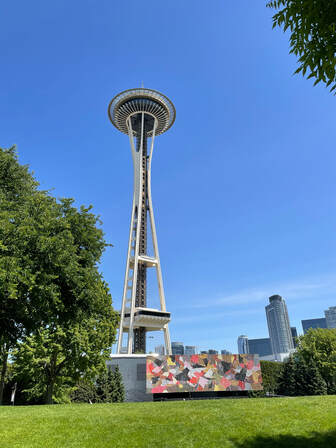
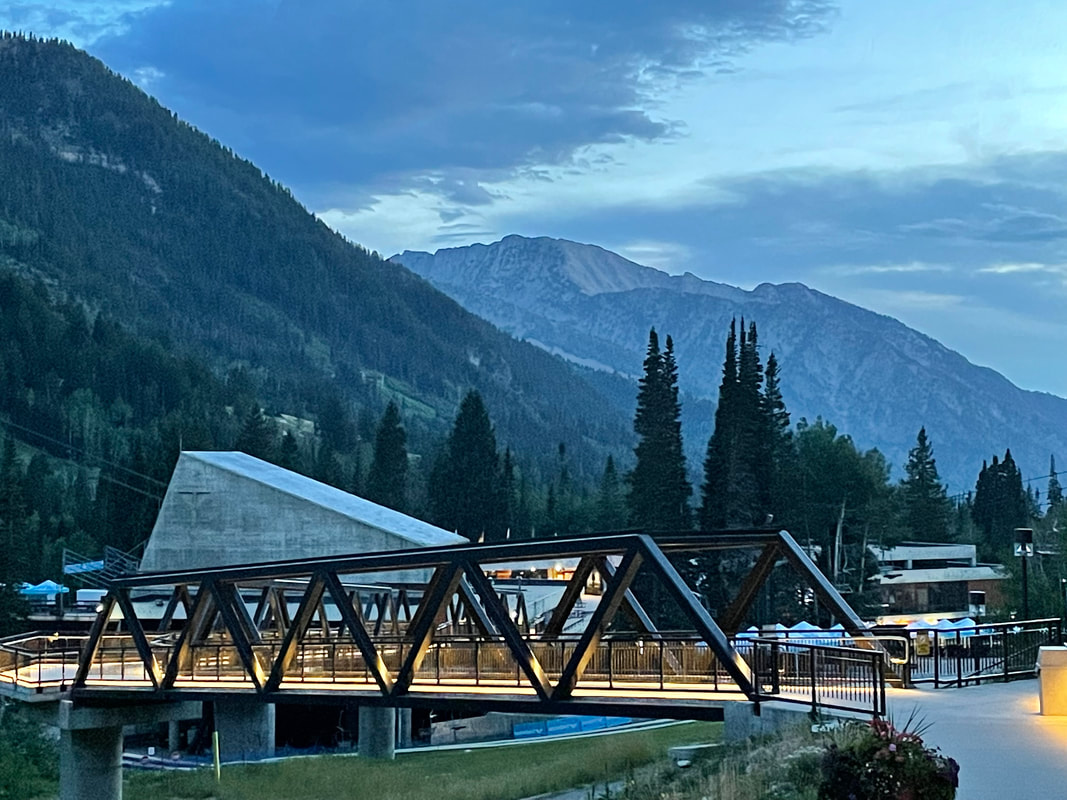
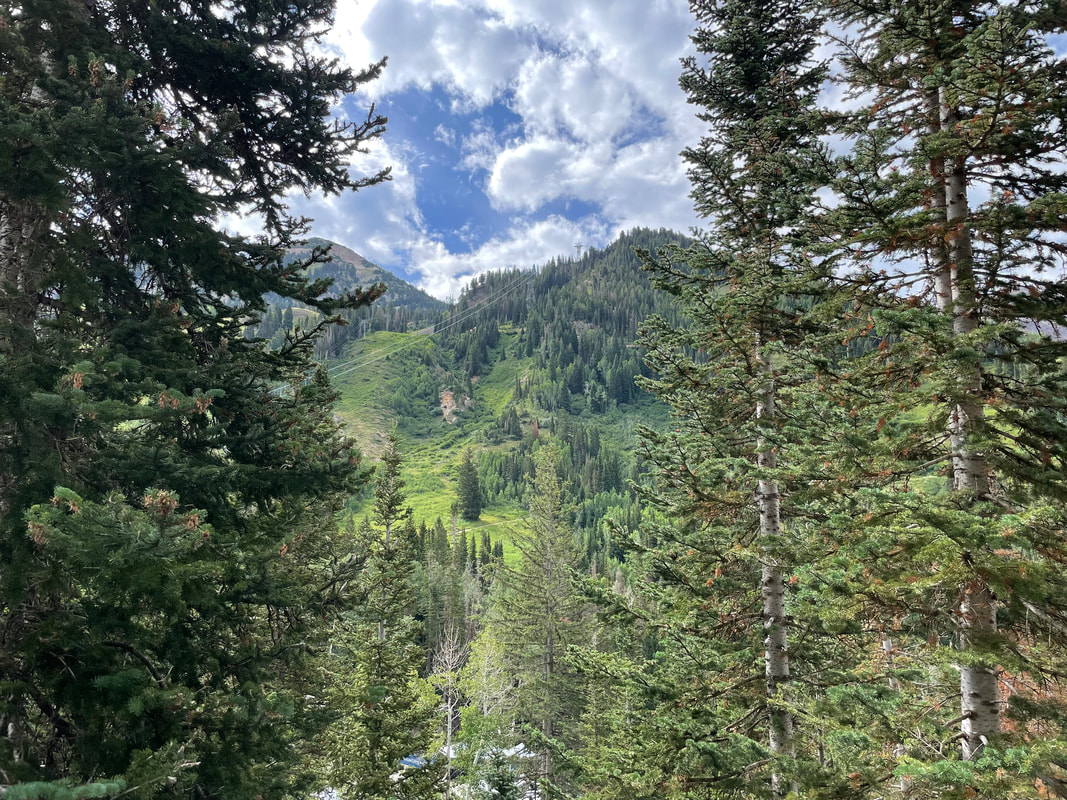
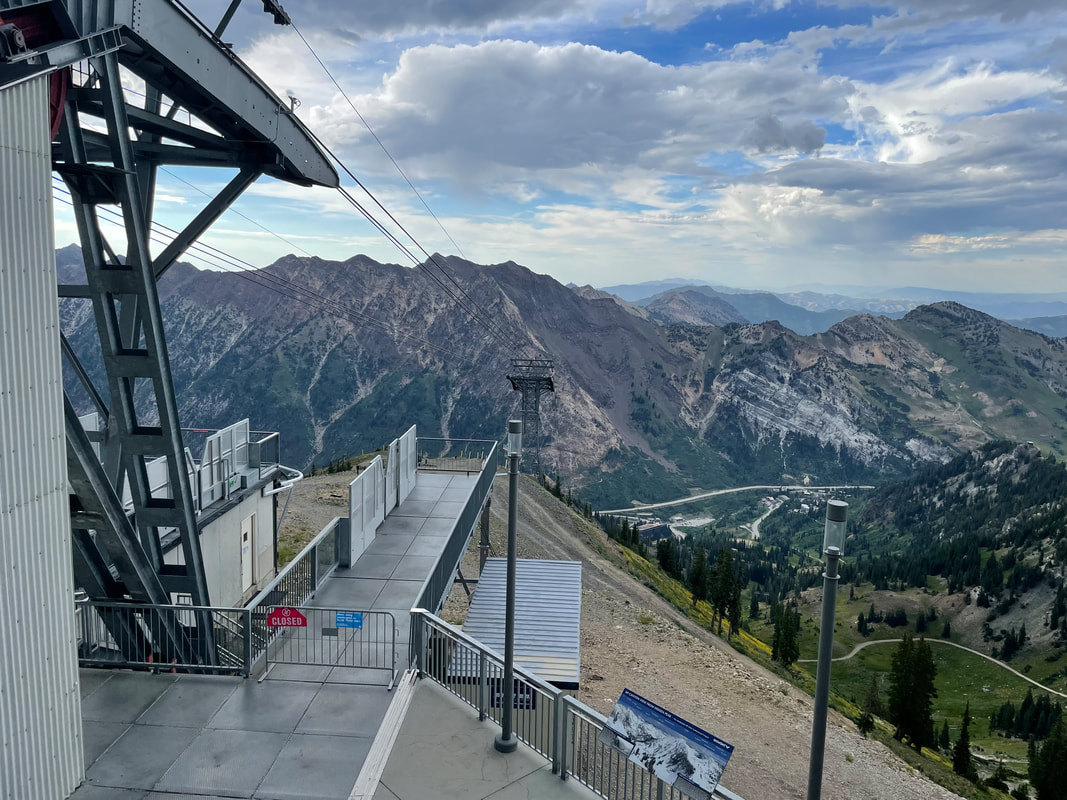
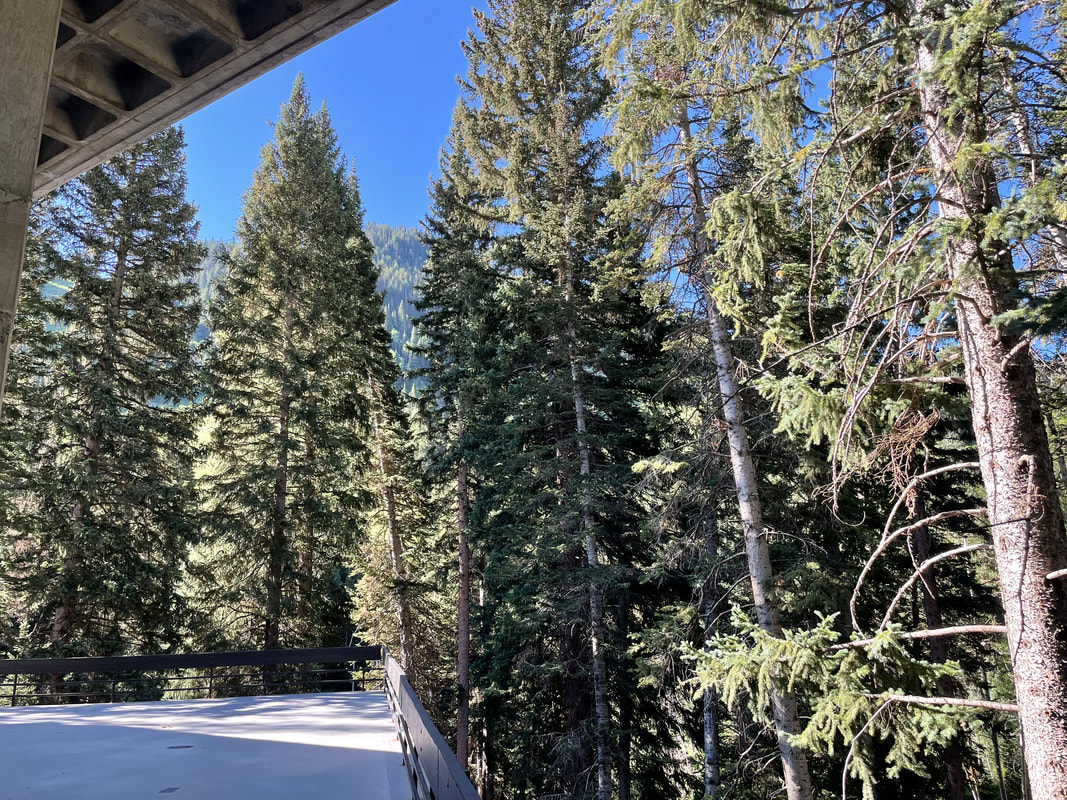
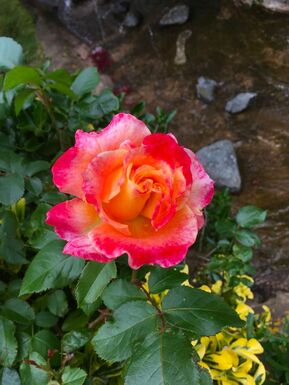
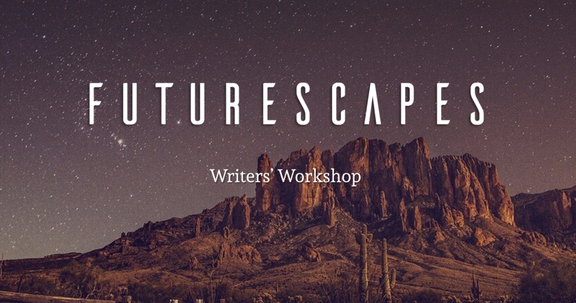


 RSS Feed
RSS Feed